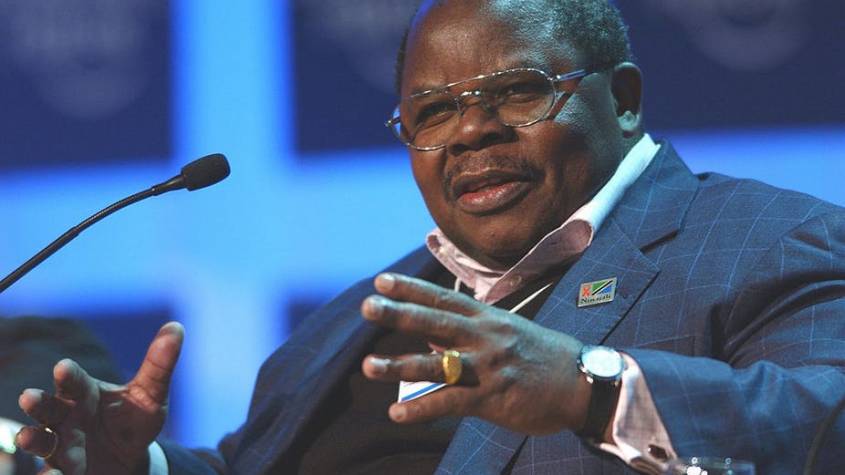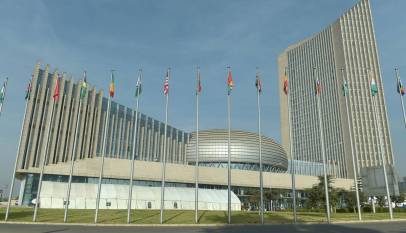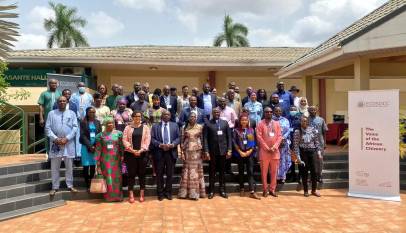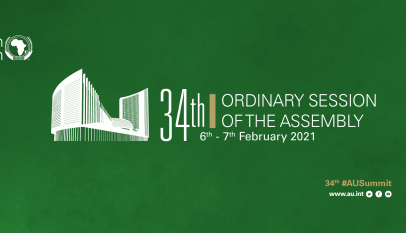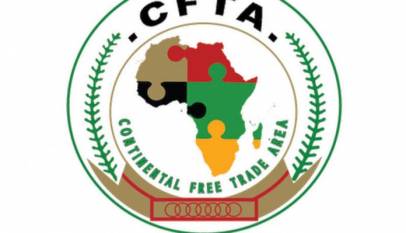OBITUARY | President Benjamin Mkapa: East Africa’s peacemaker, Tanzania’s reformer
Benjamin William Mkapa, who passed on at the age of eighty-one in the early hours of Friday, July 24, was President of the United Republic of Tanzania, between 1995 and 2005. Beyond his bold economic reforms in Tanzania, Mkapa was famous for his peacemaking tour de force across Africa’s Great Lakes region
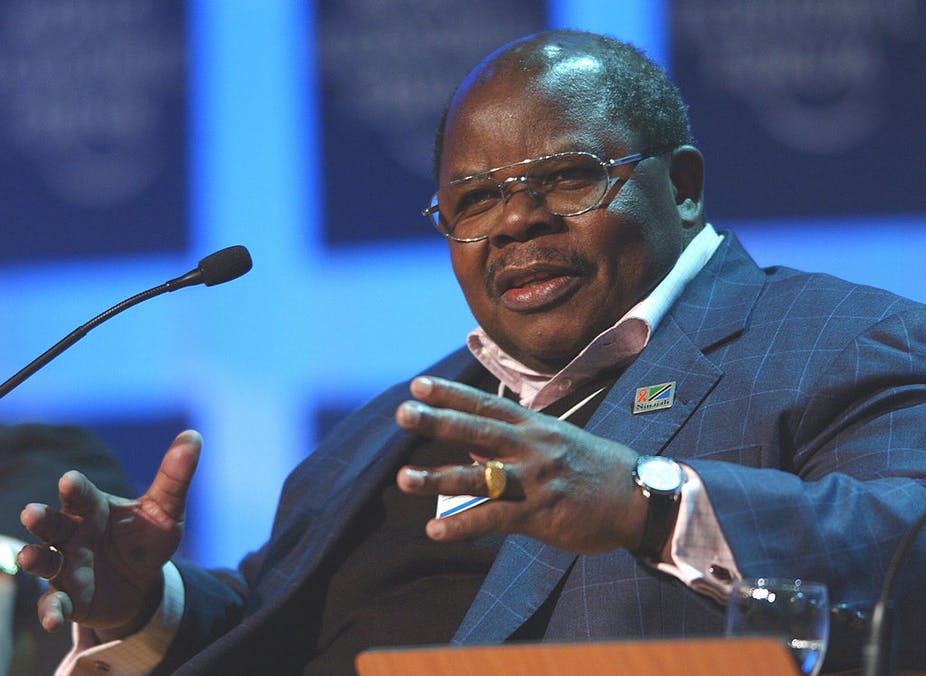
Since early 1960s, Mkapa had been a member of the now defunct Tanganyika African National Union (TANU). In 1977, TANU had merged with the Afro-Shirazi Party (ASP) in Zanzibar to form the Revolutionary State Party also known as Chama Cha Mapinduzi (CCM), Tanzania’s current ruling party under whose banner Mkapa became president.
As President of Tanzania, Mkapa is best remembered for the key role he played in helping Tanzania transitioned from an African socialist system built on the political philosophy of the country’s founding father cum first president, Julius Nyerere – known as Ujamaa i.e brotherhood – into a free-market economy.
Ujamaa villagization has been described as “both a resettlement and production project, through which villages were to become schemes in which people lived and worked communally.”
Reformer at home, peacemaker abroad
The New York Times said Mkapa had during his decade-long stewardship of Tanzania “overhauled the largely ineffective public sector, privatized state-owned corporations, widened the tax collection base, secured international debt relief and helped incentivize the growth of the private sector.” However, despite his famous campaign against corruption, Mr Mkapa was himself dogged by allegations of corruption and mismanagement of public funds, throughout his post-presidency life.
Outside of Tanzania, Mkapa is most dotingly remembered as an African statesman whose shuttle diplomacy, while in office and afterwards, brought about peace in Africa’s Great Lakes region. He mediated over conflicts in as far as Kenya, South Sudan, Burundi and the Democratic Republic of Congo. As Tanzania’s president, Mkapa also promoted integration in the East African Community (EAC) region, successfully championing the re-establishment of the EAC in 2000, over two decades after its collapse in 1977 – alongside Kenya’s Daniel Arap Moi and Uganda’s Yoweri Museveni.
Originally founded in 1967, the Arusha, Tanzania-based EAC is recognized as one of African Union’s eight Regional Economic Communities (RECs), described as building blocks of the Union. It comprises of six countries of the African Great Lakes region: Burundi, Kenya, Rwanda, South Sudan, Tanzania, and Uganda.
A journalist turned diplomat cum politician
Before his foray into Tanzanian politics, Mkapa had had an equally meritorious carrier as a journalist, rising to the position of executive editor of the English-language newspaper The Daily News before becoming the founding editor of the Tanzania News Agency. In 1974, Mkapa was appointed as press secretary to President Julius Nyerere, his political mentor. Like Nyerere, Mkapa would also become a bastion of Tanzanian nationalism and Pan Africanism.
Prior to becoming president in 1995, Mr. Mkapa had served in various diplomatic and ministerial positions. He was Tanzania’s high commissioner to Nigeria and Canada and ambassador to the United States of America, before later serving as minister across varied portfolios namely, foreign affairs; information and culture; information and broadcasting; as well as science, technology and higher education.
At global level, Mr. Mkapa did occupied many diplomatic posts including serving as co-chair – along with former President Tarja Halonen of Finland – of the World Commission on the Social Dimension of Globalization, between 2003 and 2004. The Commission was an independent body established by the International Labour Organization (ILO) in February 2002, “to respond to the needs of people as they cope with the unprecedented changes that globalization has brought to their lives, their families, and the societies in which they live.”
Moreover, Mkapa was a member of the Commission for Africa, an initiative of the then British Prime Minister Tony Blair aimed at examining and providing impetus for development in Africa. Founded in 2004, the Commission’s objectives were “the generation of new ideas for development and to deliver implementation of existing international commitments towards Africa.” In 2005, he was appointed into the Panel of Eminent Persons of the United Nations Conference on Trade and Development (UNCTAD) by then UNCTAD Secretary-General Supachai Panitchpakdi.
Similarly, in 2006, then United Nations Secretary-General Kofi Annan appointed Mkapa into the High-level Panel on United Nations (UN) System-wide Coherence in areas of Development, Humanitarian Assistance and Environment. Between 2006 and 2008, he served as a commissioner on the UN High Level Commission on the Legal Empowerment of the Poor. The Commission was established in 2005 as the “first global initiative to focus on the link between exclusion, poverty, and the law.”
Again, President Mkapa was in 2006 made patron of the UN Committee of 2008 International Year of Planet Earth, while in September 2010, he was appointed by then UN Secretary General Ban Ki-Moon to lead a special panel to monitor the January 2010 referendum in Southern Sudan. He was also a co-chair of the Investment Climate Facility for Africa (ICF); a member of the board of governors of the Dead Sea Scrolls Institute; as well as a member of the Board of Trustees of the African Wildlife Foundation (AWF).
During his lifetime, Mr Mkapa was also a member of the prestigious Madrid Club of Former Heads of State and Government, whose membership include over 100 distinguished former heads of state and government of democratic nations. Madrid de Club’s exclusive and high-profile membership is reserved for “respected former Heads of State and Government of democratic countries who contribute their personal experience and knowledge.”
Tributes for President Mkapa
In the aftermath of President Mkapa’s passing in July, torrents of tributes continued to flow from African leaders, notably heads of state as well as intergovernmental organizations from around the world. While speaking at Mkapa’s funeral, the current Tanzanian President John Magafuli, described his death as a “big loss not only to his family, but also to other countries in Eastern Africa, the Great Lake region and Africa in general.”
Similarly, President Magafuli’s Kenyan counterpart, Uhuru Kenyatta, had hours after the announcement of the death of President Mkapa, issued a presidential proclamation declaring three days of national mourning in Kenya, during which the Kenyan flag and that of the EAC were flown at half-mast.
“The People of Tanzania have lost a brilliant public servant who dedicated his entire adult life serving his beloved nation with honour, dignity and excellence. The People of Kenya have lost a close friend and brother, who stood with Kenya during some of our darkest hours. East Africa has lost a founding father of the East African Community, and the Continent of Africa has lost a dedicated Pan-Africanist who shaped the destiny of the Continent as President and even after leaving Office,” President Kenyatta was quoted to have said.
In neighboring Rwanda, the reaction wasn’t markedly different; President Paul Kagame had also declared three-day of national mourning, “in solidarity with the government and people of the United Republic of Tanzania. We are saddened by the passing of former President Mkapa. My deepest condolences to his family, the people of Tanzania and my friend President John Pombe Magufuli,” President Kagame said. “The loss of our brother Mkapa is one that will be felt throughout the continent. He was a great Pan-Africanist whose contribution went well beyond Tanzania.”
In his tribute, chairperson of the AU Commission, Moussa Faki Mahamat, said President Mkapa would be remembered for his tireless efforts in making peace in the region. “It is with deep sadness that I learnt of the passing of Mzee Benjamin Mkapa, former President of Tanzania. A statesman particularly remembered as an indefatigable peacemaker in the East African region. My thoughts and prayers go out to his family, the people and government of Tanzania,” Mahamat tweeted.
A conflicting legacy?
During his presidency, Mr. Mkapa was also involved in many other prominent global initiatives aimed at reducing abject poverty in Africa, including campaigns for combating HIV/AIDS pandemic. Thus, he is today being credited for much of Tanzania’s success in responding to HIV. After his presidency, Mkapa became one of the founding members of the Champions for an AIDS-Free Generation, a group of former presidents and influential African leaders committed to AIDS-free generation in Africa.
At home in Tanzania, Mkapa’s presidency would be remembered for ushering multi-party democracy, the privatization of state enterprises, the liberalization of the economy, and provision of infrastructure. Abroad, the late African statesman would be most remembered for the peace missions he spearheaded across the Great Lakes region.
An incredibly engaging conversationalist, Mkapa was known for his gift of the gab and first-rate sense of argument. Those who knew him closely also testified about the warmness of his personality such that whenever speaking in public, he never failed to carry his audience along with him.
Despite this towering successes, his legacy had albeit been described as “conflicting”, thanks to the persistent allegations of corruptions that had dogged him in life and would continue to do so even in death. There is also the 2001 killing of 32 protestors by the Tanzanian security forces in Pemba, Zanzibar.
Born November 1938 in British ruled Tanganyika, despite his very humble beginnings and thanks to his sheer intellect, young Benjamin managed to acquire a quality education graduating from then Makerere University College in Uganda with a Bachelor of Arts degree in English in 1962. In 1963, he attended Columbia University in the United States from where he earned a master’s degree in International Affairs. Adieu Mzee Mkapa!

